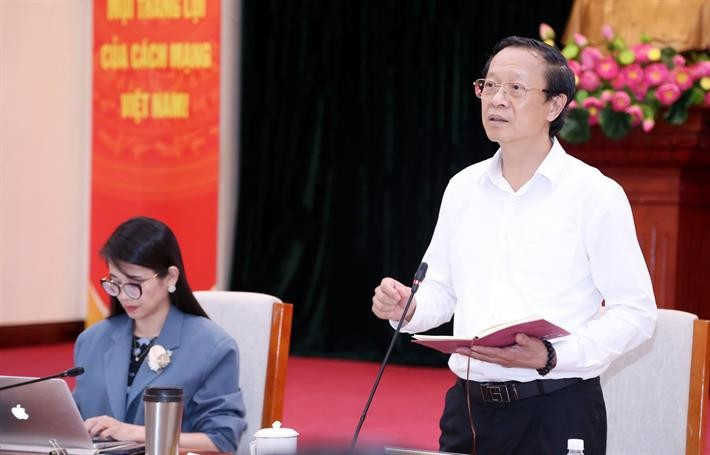
That was the comment of Permanent Deputy Minister of Education and Training Pham Ngoc Thuong at the meeting to solicit comments on the draft Project "Making English the second language in schools for the period 2025-2035, with a vision to 2045" (referred to as the Project).
According to the Ministry of Education and Training, the project aims to concretize the policies and resolutions of the Party and Government on fundamental and comprehensive innovation in education and training, developing high-quality human resources, and meeting the requirements of international integration.
The project aims to make English the second language in the education system by 2045, widely used in teaching, management and educational activities. The implementation roadmap is divided into three phases (2025-2030, 2030-2040, 2040-2045) with a set of 7 assessment criteria for each level of education.
Key tasks and solutions include: raising social awareness; perfecting mechanisms and policies; developing teaching staff; building programs and learning materials; innovating exams, tests and assessments; applying technology and artificial intelligence; strengthening international cooperation and socialization; promoting emulation and rewards.
Is it possible?
According to Deputy Minister of Education and Training Pham Ngoc Thuong, the project is expected to be implemented in the entire education system with nearly 50,000 establishments, about 30 million students and 1 million officials and teachers. Of which, it is necessary to add about 12,000 preschool English teachers, nearly 10,000 primary school teachers, and at the same time train at least 200,000 teachers capable of teaching in English by 2030.
Resources for implementation include the state budget and the participation and contributions of businesses, organizations and individuals. The Ministry of Education and Training affirmed that the success of the Project requires social consensus and persistent implementation over 20 years, in order to contribute to improving national competitiveness and deep international integration.
A teacher in the English department at a prestigious inter-level school in Hanoi said that the school currently has 45 English teachers, including 5 teachers teaching Science in English and 2 teachers teaching Math in English. The Computer Science subject is new this year, but the school has not yet recruited a teacher specializing in English for this subject.
As a manager and the person who has helped the school board recruit English teachers for many years, this teacher also said that recruiting quality English teachers who meet the school's requirements is not easy. The salary policy for foreign teachers in the school is always changing. And when a teacher leaves, it is very difficult for the department to find a replacement teacher.
This teacher also emphasized that the school has a team of professional consultants for Math, English, and Science, so they should have their own training department because each subject has only 2-5 people in the English group, and each subject has a specialized degree, so they should be retrained systematically.

From the perspective of teacher training units, Professor Nguyen Quy Thanh, Principal of the University of Education (Hanoi National University) said that training English as a second language must be associated with training thinking, the ability to receive and reflect on culture, and at the same time combine with rational thinking to create real changes. Besides, the period of 4-7 years old is the "golden period" for learning languages, but if children learn English too early, it can affect their ability to master their mother tongue and receive Vietnamese culture.
Ms. Tran Thi Huyen, Acting Director of the Department of Education and Training of Can Tho, said that schools were very excited when Conclusion No. 91-KL/TW and Resolution No. 71-NQ/TW of the Politburo both determined to make English the second language. However, the implementation still had many concerns about teacher capacity and infrastructure conditions. With the reality that a large number of students are ethnic minority children, many of whom are not yet proficient in Vietnamese, there needs to be a suitable roadmap for each locality to ensure synchronous and effective implementation.
Mr. Nguyen Tran Binh An, a master's candidate in Applied Linguistics for the future at the University of York (UK), pointed out that currently, the Vietnamese education system has about 30 universities training in English pedagogy. In particular, some institutions have been implementing training programs for teachers of other subjects in English (such as Hanoi Pedagogical University), with separate quotas for preschool and primary schools.
In addition, many schools also expand opportunities through second degree or master's programs, creating conditions for those with a foreign language background or who want to change careers to join the teaching staff. In addition to the public training system, international organizations such as Apollo or British Council also contribute to the training and issuance of international professional certificates such as CELTA or TESOL.
Although the goal of developing English teachers is theoretically feasible, the implementation process still faces many challenges.
According to Mr. Binh, one of the core issues is to ensure that the source of students has sufficient English proficiency and motivation to study pedagogy. If training targets are set but the quantity and quality of input do not meet the requirements, the goal will be difficult to achieve.

What is the solution?
Mr. Nguyen Tran Binh An, a master's candidate in Applied Linguistics for the future at the University of York (UK), said that in recent years, the State has made important strides in investing and improving incentives to attract pedagogical students, and at the same time issued Resolution No. 71/NQ-TW on breakthroughs in education and training development.
However, according to Mr. Binh, to maximize effectiveness, there needs to be a consistent budget source from the State as well as specific policies to ensure the output standards of pedagogical students, as well as promote English education right from when they are in school, thereby maintaining and improving the professional qualifications of future teachers.
It can be seen that the development of the teaching staff is a systematic circle and has a close cause-effect relationship. Good training programs, with strict input and output standards (especially in foreign language proficiency), will create a generation of high-quality teachers.
These quality teachers will impart knowledge and advanced teaching methods, helping the next generation of students become better at English and have more comprehensive abilities. They will be a potential, quality resource to become excellent future teachers, maintaining and improving the professional level of the industry.
In terms of expertise, the target of 200,000 teachers capable of teaching other subjects in English by 2030 (equivalent to about 50,000 teachers per year) is showing that current training programs are not enough.
Currently, there are only a few schools offering this training program with limited enrollment. For example, the Mathematics Education program (taught in English) last year had a enrollment of only 60 students, the Physics Education program in English had 20 students, and the Chemistry program had 20 students.
To overcome this gap, Mr. Binh said that, in addition to increasing the quota for training subjects in English, actively promoting training in the CLIL (Content-Language Integrated Teaching) teaching method is very necessary.
This form should be strongly integrated even in the English pedagogy major so that graduates can become teachers not only of English but also of other subjects in English.
Currently, CLIL teaching is not yet a priority in some English teacher training schools in Vietnam, giving way to other approaches. This adjustment of focus will help the training program to be more consistent with the State's strategic goals.
In addition, universities can increase training quotas, along with integrating technology and online platforms to ensure physical facilities are met.
Perhaps the biggest challenge for the Project is the disparity in educational qualifications and conditions between regions. Achieving the number of teachers is one thing, but to popularize the use of English in education requires a consistent and flexible policy from the management level. In many remote areas, conditions are so limited that access to English, even the mother tongue, is still difficult. Therefore, popularizing English as a second language will take a long time to narrow this gap.
When the curriculum (including teaching in English) cannot be implemented evenly, the Ministry of Education and Training will face a big challenge in standardizing learning content and especially national exams. Applying a common set of criteria for the whole country will be unfair and will not reflect the actual capacity of students, causing great difficulties for the university admission process later.
A supporting solution is a tiered implementation roadmap that is appropriate to the needs and development realities of each region. In addition, the State can take advantage of the form of distance training and CLIL training to ensure that teachers in all regions have access to modern teaching methods. However, this is only a temporary and supportive solution while waiting for the incentive policy to take effect.
In addition, the system of testing, quality assessment and university admission needs to be flexibly designed, and can be divided into target groups to meet the needs of both students studying the English intensive/integrated program and students following the current program in areas with limited conditions. This will ensure fairness and consistency in assessing academic ability and admission.

Circular 19 of the Ministry of Education and Training: Humane or dumping suffering on teachers?

Many new regulations cover overtime pay for teachers.

Ministry of Education and Training: Suspension and expulsion from school risk pushing students into crime
Source: https://tienphong.vn/dua-tieng-anh-thanh-ngon-ngu-thu-hai-tham-vong-lon-thach-thuc-con-lon-hon-post1781004.tpo







![[Photo] The Standing Committee of the Organizing Subcommittee serving the 14th National Party Congress meets on information and propaganda work for the Congress.](https://vphoto.vietnam.vn/thumb/1200x675/vietnam/resource/IMAGE/2025/11/19/1763531906775_tieu-ban-phuc-vu-dh-19-11-9302-614-jpg.webp)


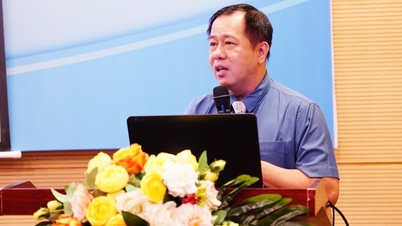

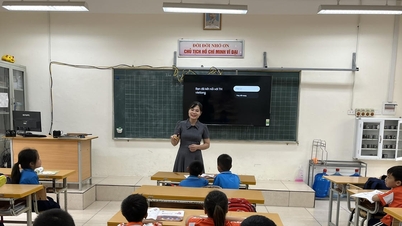

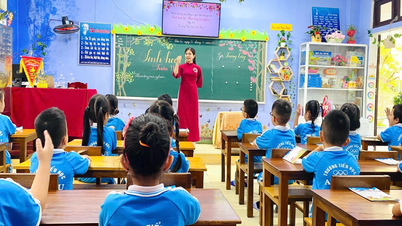


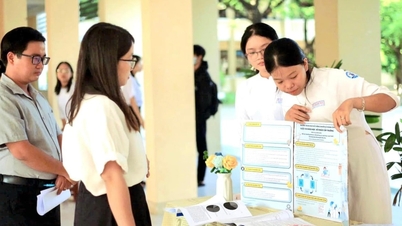

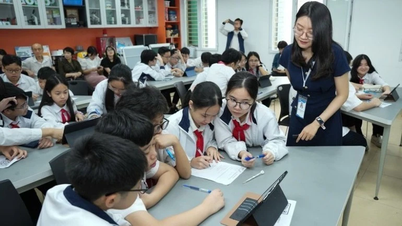

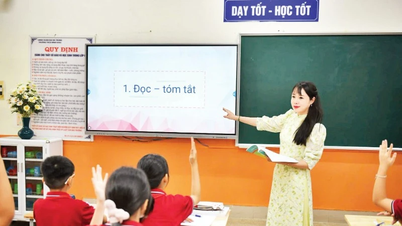
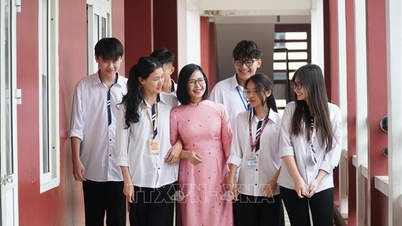

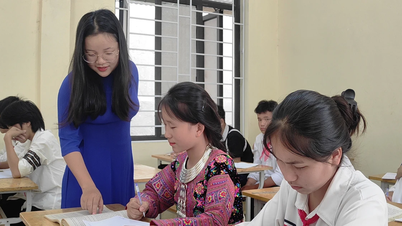







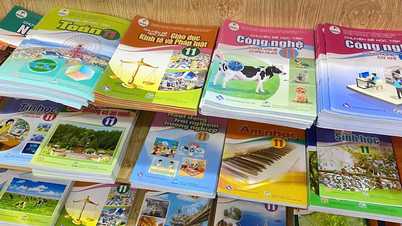





![[Photo] Prime Minister Pham Minh Chinh and his wife meet the Vietnamese community in Algeria](https://vphoto.vietnam.vn/thumb/1200x675/vietnam/resource/IMAGE/2025/11/19/1763510299099_1763510015166-jpg.webp)
![[Photo] General Secretary To Lam receives Slovakian Deputy Prime Minister and Minister of Defense Robert Kalinak](https://vphoto.vietnam.vn/thumb/1200x675/vietnam/resource/IMAGE/2025/11/18/1763467091441_a1-bnd-8261-6981-jpg.webp)











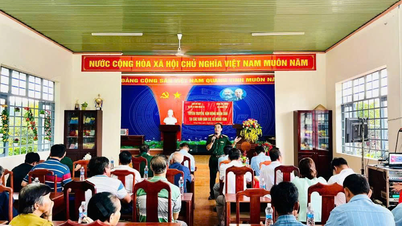





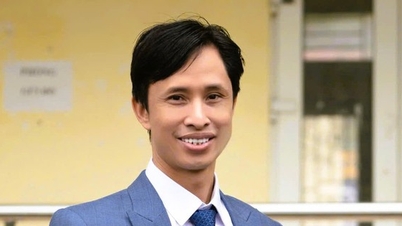







































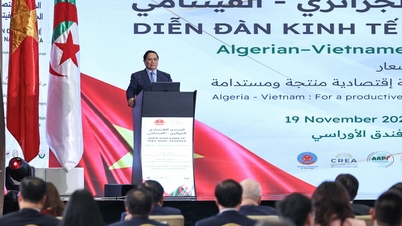

















Comment (0)